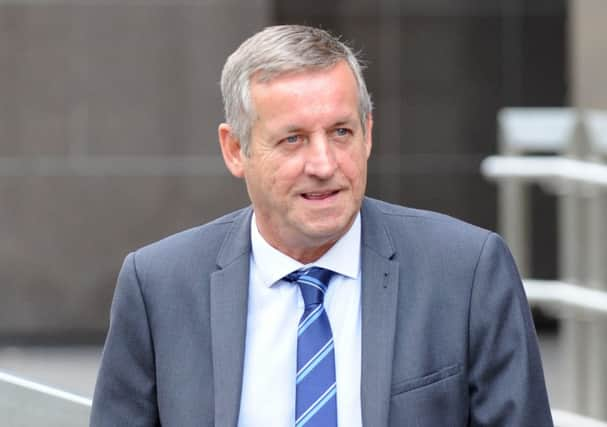Glasgow bin lorry driver’s ex-employer absence quiz


Harry Clarke, 58, worked for the bus company prior to his job at Glasgow City Council and the accident on December 22 last year which claimed six lives.
A First Bus employee exit form completed for Mr Clarke at the end of December 2010 stated he had no attendance issues, despite having taken 26 sick days that year.
Advertisement
Hide AdAdvertisement
Hide AdThe document, shown to a fatal accident inquiry at Glasgow Sheriff Court, said he was suitable for re-employment even though he had been the subject of final warnings over his absences while working for the company.
Operations manager Francis McCann, 59, who said he did not remember if he completed the exit form himself, was pressed over the document by Peter Gray QC, acting for the council, who told him: “You didn’t do your job properly, did you?”
Mr Gray added: “Anyone looking at this form would be utterly misled, wouldn’t they?”
The First Bus manager said “No,” and explained that human resources always check a separate employee file kept at his depot for issues before re-employing any past worker.
Mr McCann was questioned by lawyers after giving evidence yesterday, when he told the inquiry that details of Mr Clarke’s absences did not feature on the exit form as a warning given to him was not “live”.
The inquiry has previously heard that Glasgow City Council is unable to locate the reference it received when Mr Clarke took up a job with the authority in 2011.
Erin McQuade, 18, and her grandparents Jack Sweeney, 68, and Lorraine Sweeney, 69, from Dumbarton, West Dunbartonshire, died when they were hit by the runaway truck three days before Christmas.
Jacqueline Morton, 51, Stephenie Tait, 29, both from Glasgow, and Gillian Ewing, 52, from Edinburgh, were also killed when the vehicle veered onto the pavement on Queen Street, eventually crashing into the Millennium Hotel in George Square.
Advertisement
Hide AdAdvertisement
Hide AdWitnesses report seeing the driver slumped at the wheel of the truck.
Mr Clarke’s medical history was under the spotlight earlier when consultant cardiologist Dr Nicholas Boon was asked about a report he prepared for solicitors acting for the family of Ms Morton.
The inquiry has heard the driver blacked out while behind the wheel of his stationary bus in April 2010 and Dr Boon, 64, said he should have been referred to a heart specialist at that point.
The expert said it was likely Mr Clarke would have been diagnosed with vasovagal syndrome, which affects the heart rate and blood pressure, and would have been told not to drive.
He said: “If Mr Clarke had been referred for specialist evaluation of the event of April 2010 it is likely that he would have been advised to report the matter to the DVLA and that his vocational driving licence would have been revoked for a minimum of three months.”
The inquiry has heard Mr Clarke has a history of fainting and dizzy spells dating back to the 1970s and failed to note them when required on job application forms.
Dr Boon said he made his conclusions having had access to Mr Clarke’s full medical history.
Solicitor General Lesley Thomson QC, leading the inquiry, suggested nobody assessing the driver would have had this full history.
Advertisement
Hide AdAdvertisement
Hide AdAsked if there was a solution to this, Dr Boon said there were confidentiality issues and any record system would always rely on disclosure by the individual.
He said: “At the end of the day, the computer only contains what you put into it.”